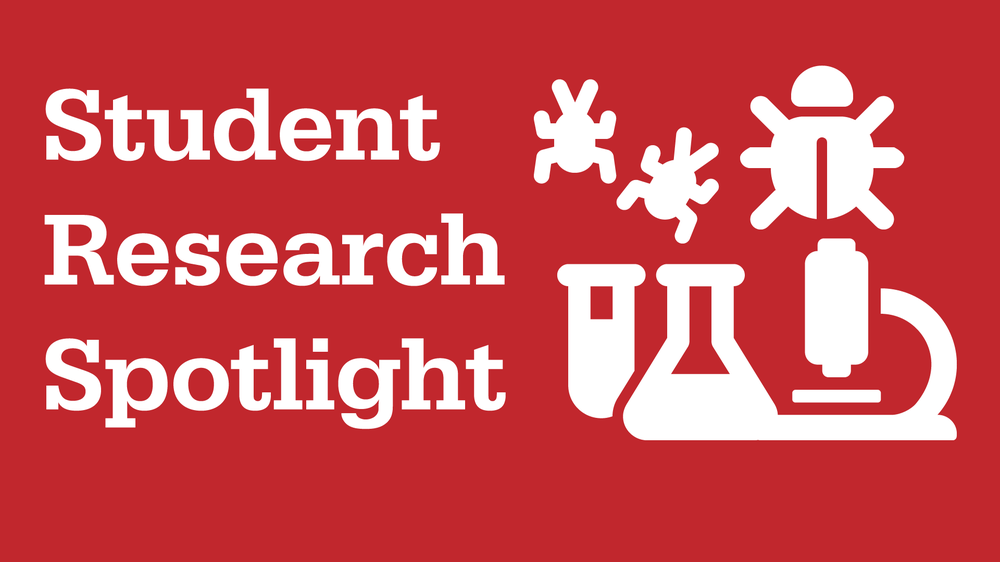This is the second of ten short news articles written by students, during the professional development class of Fall 2022, about each other's research.

Student Research Spotlight - Daniel Bliss
Student Research Spotlight - Daniel Bliss
By Laura Laiton
Are you afraid of spiders? If you are an insect feeding on agricultural crops you should be! Spiders are magnificent insect pest controllers, with a great predatory capacity. But, if they are such good predators of pests, why are not they used in biological control programs of insect pests in agriculture fields?
According to Daniel Bliss, an entomology master's student in John Tooker’s Lab at Penn State, “the problem lies in the fact that spiders naturally have a low presence in the agricultural environments, which makes it difficult to design appropriate biological control strategies with them.” So, what is causing their absence in crops? Daniel plans to test the hypothesis that improving spiders’ habitat structure in crops could allow them to survive and abound better in the agricultural landscapes.
To this end, Daniel will plant some rows with diverse plants in the middle of alfalfa crops during this summer, to form what he calls Spider Refuge Zones (SRZ). These SRZ will provide spiders with refuge where they can be protected, appropriate places to build their webs, and better temperature and humidity conditions to increase their diversity and abundance into alfalfa crops. According to Daniel, if his hypothesis turns out to be true, the results of this study could help farmers to increase spiders’ presence and include them as biological controllers in their crops, supporting the regulation of a large variety of pests. He considers that improving biological control is an important step towards effective farming that reduces pesticide use. Reducing pesticide use helps the grower reduce costs of labor and contributes to environmental conservation by preventing water pollution and protecting beneficial insects such as pollinators and predators.
So far, Daniel has tested the sampling techniques he is going to use for this project. He found that using the sweeping net and pitfall trap are the best ways to cover the different levels of the plants, from the ground to the top, which improves the spider sampling accuracy. He is ready to start planting SRZ in May, and he is so excited to see what the results of this study will look like, which could change the spiders’ role in agriculture. And if all goes well, he believes that perhaps in the future these results can be used to improve spider conservation outside of agricultural fields as well.
_________
Daniel Bliss’ thesis advisory is Dr. John Tooker, and his work is supported by the Pennsylvania State College of Agricultural Sciences, the United States Department of Agriculture (USDA).

